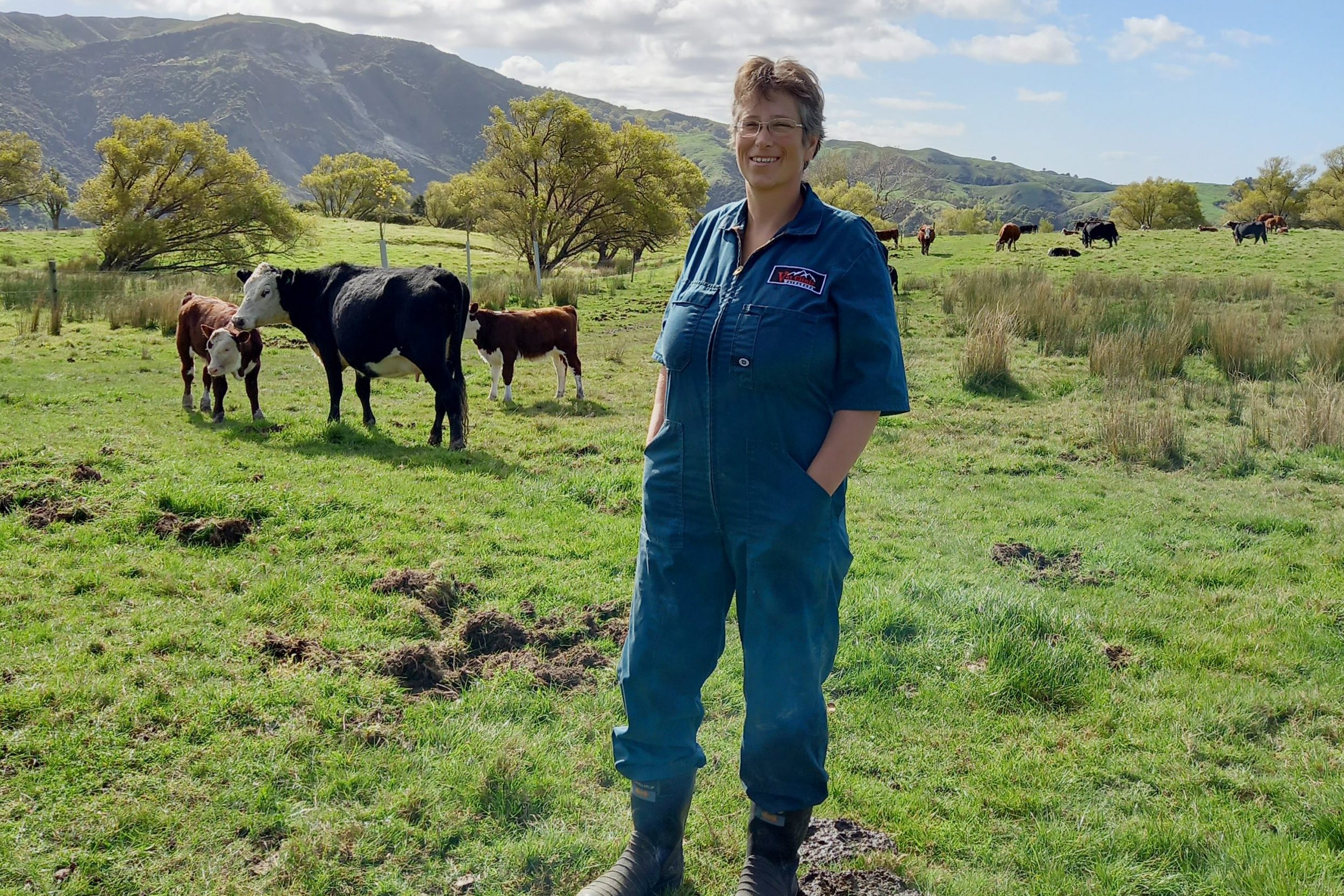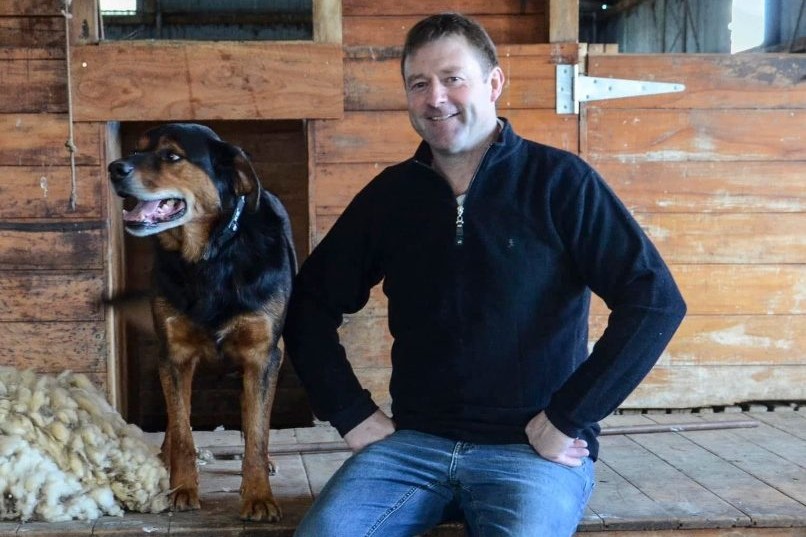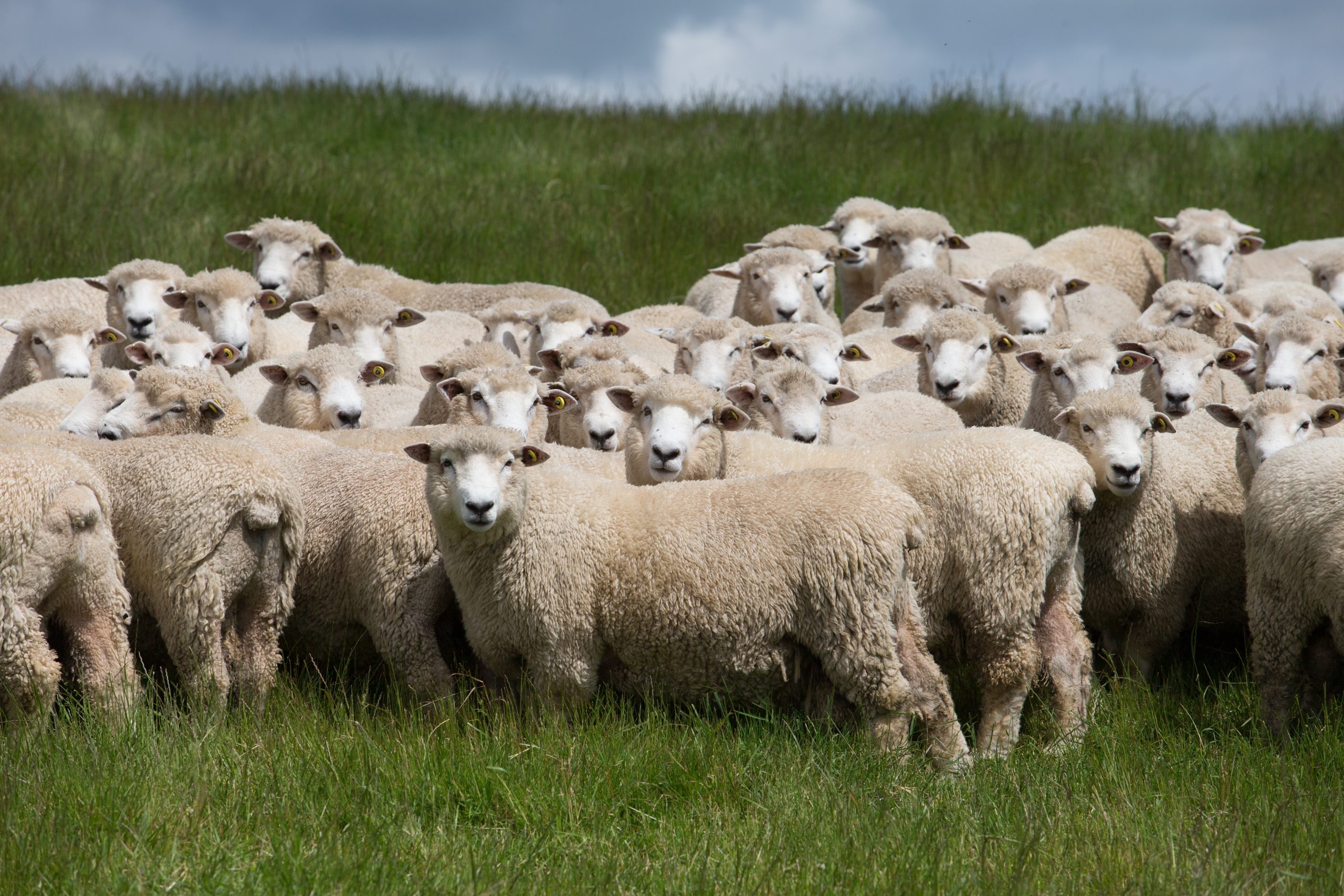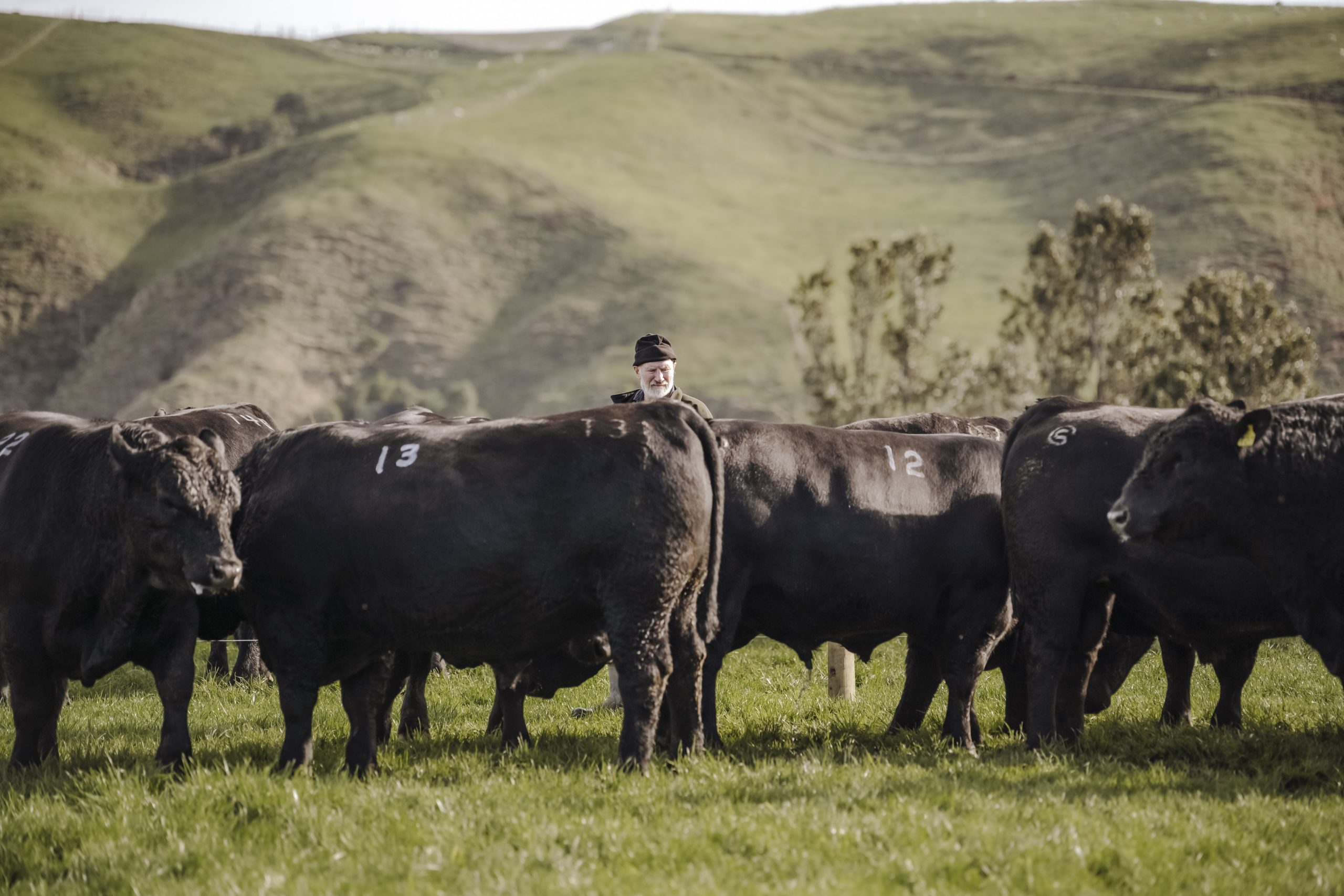A winning partnership
The FS Partnership hill country sheep and beef equity operation has taken out this year’s Tararua Farmer of the Year title. By Sandra Taylor. Photos by John Cowpland.
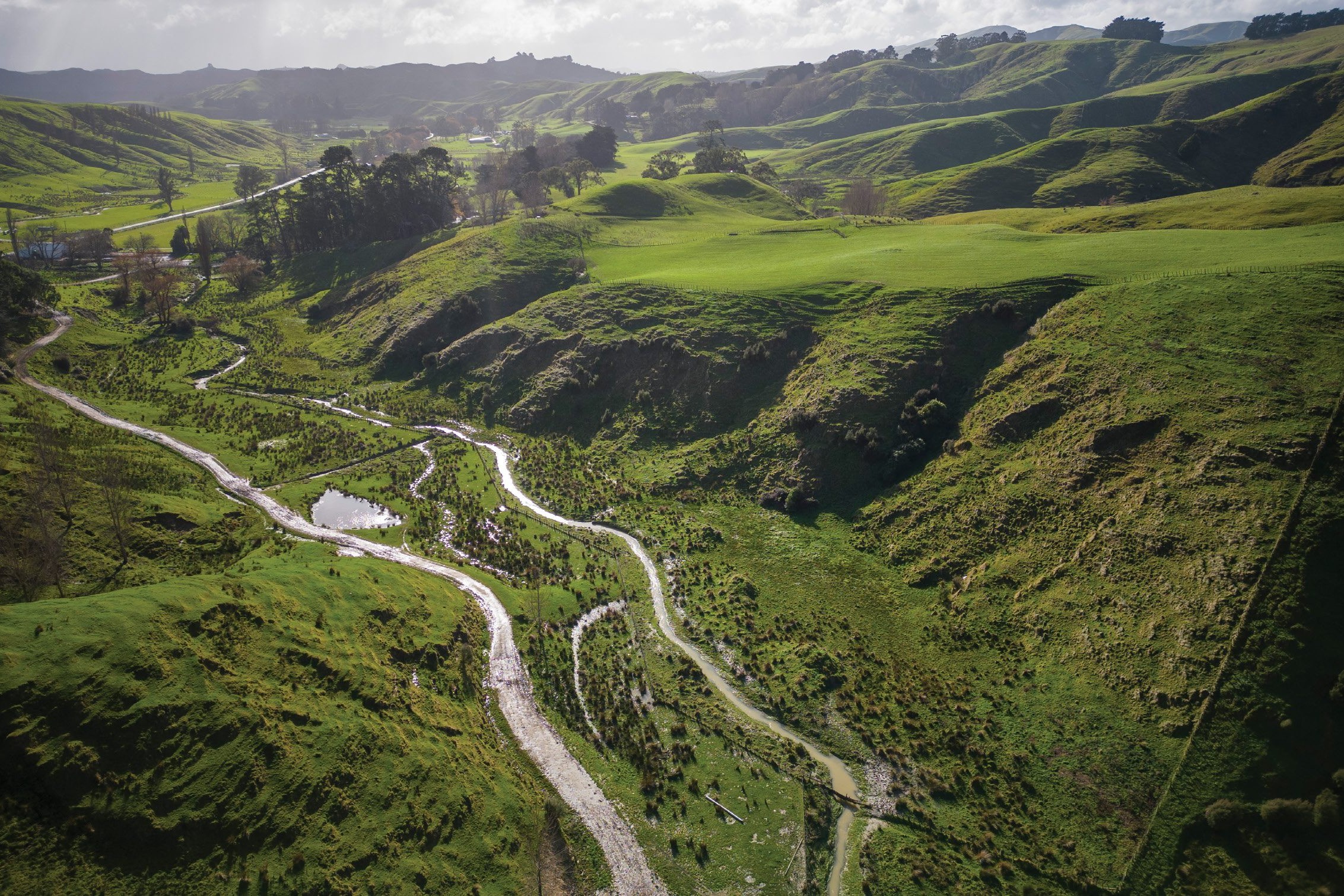
The FS Partnership hill country sheep and beef equity operation has taken out this year’s Tararua Farmer of the Year title. By Sandra Taylor. Photos by John Cowpland.
An unusual equity partnership is part of a long-term business growth plan for Tararua farmers Brent and Rachael Fouhy and Ben Simpson.
The partnership was recently named Tararua Farmer of the Year, recognising the performance of their hill country sheep and beef operation as well as their innovative approach to business and people growth.
The partnership farms 845 hectares over two hill country properties 8km apart. Between them, they carry 8709 stock units with a sheep to cattle ratio of 65:35.
Ben, who has had extensive experience working on large North Island stations, was initially employed by Brent and Rachael to manage Knox Estate. The employee/employer relationship worked well and when Ben began looking around for ways to grow his capital and secure a future for his children, Brent and Rachael thought there must be an opportunity to collectively grow a business.
Ben had proved himself to be an excellent stockman and his skills were growing in other aspects of the business such as running financial and feed budgets. Combining their skills and assets made sense for both personal and business development.
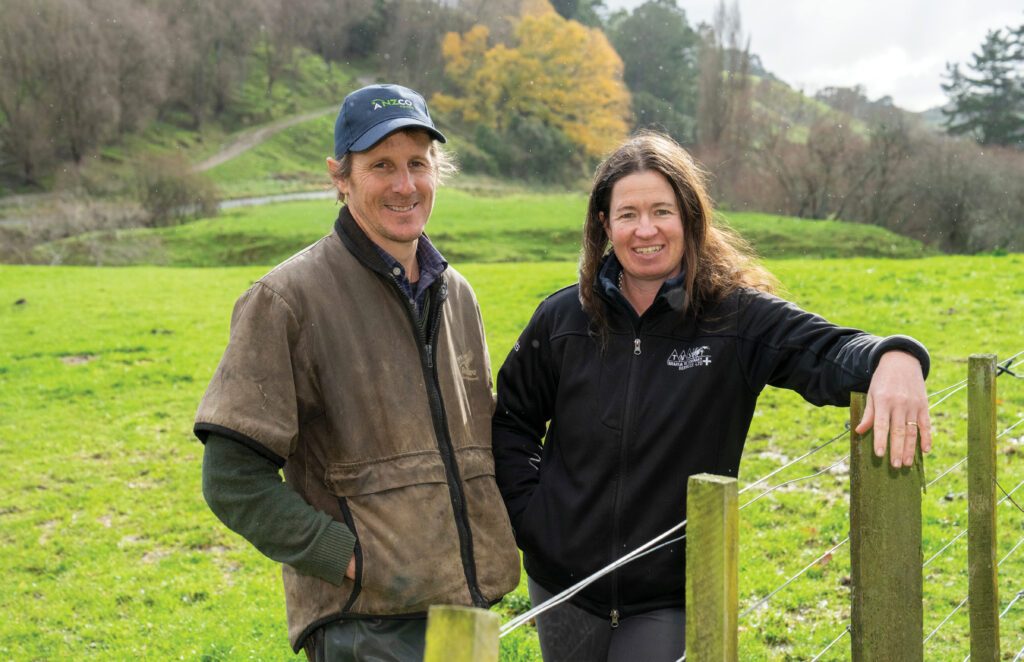
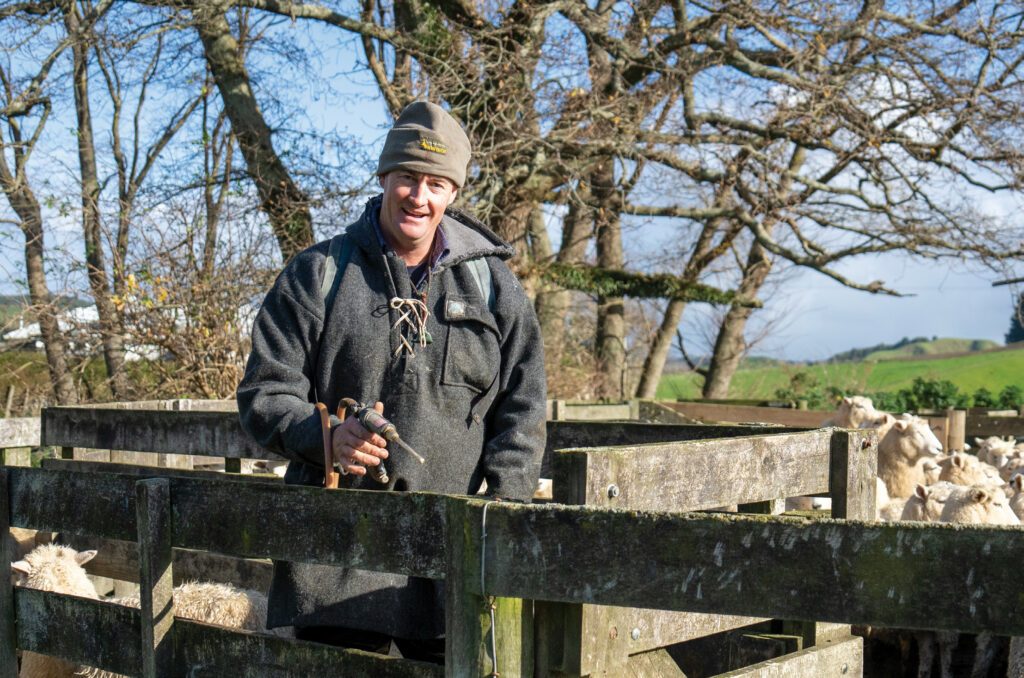
Brent says they sought advice on the equity partnership proposal from their bank and advisers and the model stacked up. While the partnership is unusual in that all parties are in their early 40s with children of a similar age, Brent believes this is also a reason it works well, with all the partners having similar drivers.
Brent and Rachael and their two children Charlotte (10) and Amelia (7) are based at the 320ha Mangaone Valley Farm which they bought off Brent’s parents in 2015. Ben and his children Allie (9) and Nicholas (7) live at the 600ha Knox Estate, a farm Brent and Rachael initially leased in 2014.
The FS partnership was formalised in September 2018 and bought all the stock and plant for both Knox Estate and Mangone Valley Farm. It now leases both properties.
The partnership’s focus is on growth and Brent says they are actively looking to buy a finishing block so they can add value to the stock they breed as well as another 4000-5000 stock unit farm.
With 70ha of flats between both farms, there is minimal opportunity to finish stock and about 50% of the lambs are sold store along with all steers. Heifers are either retained as replacements or finished.
Brent says this lack of finishing ability does leave them exposed to the vagaries of the store market.
“It would be nice to follow them through.”
While Mangaone and Knox Estate are run together, they are managed separately and there is a deliberate policy to minimise stock movement between the two farms. Mangaone gets the bottom 400 two-tooths, 200 plus five-year-old ewes and 200 poorer mixed-age ewes from Knox Estate annually. These are walked down the road and for these ewes, it is a one-way street.
Both farms are considered summer safe, but last year was challenging with a hard spring and porina damage which impacted on drymatter production, ewe condition and lamb growth rates.
The partnership measures pasture covers monthly and uses Farmax to identify pending feed deficits and surpluses. This allows them to be proactive in their decision-making such as applying nitrogen or selling stock when feed deficits are looming.
They also use vet and Country-Wide columnist Trevor Cook as a farm systems consultant and continue to implement the measuring and monitoring principles Brent and Rachael put in place a number of years ago when they were part of the StockCare programme. This includes body condition scoring ewes six times a year as they strive to maintain them at a body condition Score of 3 throughout the year.
Aside from employing students over the summer, which is part of the partnership’s philosophy of helping people grow their skills, they don’t employ any other staff, so Brent and Ben will talk to each other at least once a week about day-to-day management. They don’t have regular formal partnership meetings other than when they are meeting with Trevor or their banker.
“Just so everyone is on the same page.”
Outside of the partnership, Rachael works at Tararua Vets in Pahiatua which is one of seven clinics in the Totally Vets group. As well as being the senior vet in her practice, Rachael also sits on the company’s board of directors.
Because Rachael and Brent share child caring duties, their daughters Charlotte and Amelia are an integral part of the business. From a very young age, they were involved in farm work and took a keen interest in what’s happening. They even look forward to the bull catalogues arriving.
MANGAONE VALLEY FARM
- 320ha effective
- Sheep: 250 5-year ewes, 1330 mixed-age ewes (lambing around 150%) and 420 two-tooths
- Cattle: 70-80 cows, 35 R1 steers, 30 R1 heifers, 10-15 R2 heifers, 30-40 dairy calves.
All Mangaone Valley Farm breeding stock is put to a terminal sire, a policy Brent and Rachael put in place after Rachael returned to work as a vet and the couple took on the short-term lease of another farm.
As the couple was trying to run three farms, a terminal system on the home farm was simpler to implement and worked well.
Mangaone Valley Farm is 320ha effective with just 12ha of flats. While they strive to finish as many lambs as possible, they typically sell 25% of the Mangaone lamb crop as store.
Cattle play an important role in managing pasture quality and internal parasites. Between 70-80 cows are mated in early January to Angus or Hereford Bulls. While these are not strictly terminal sires, no replacement heifers are retained on Mangaone. While they have used terminal breeds in the past, Brent says this means they had smaller lines to sell that couldn’t be combined with the Knox Estate cattle.
Steer calves are wintered and are typically sold store in early December while 10-15 heifers are sold prime before their second winter. The balance are wintered and sold prime as two-year-olds.
They also run 30-40 dairy calves which arrive in December and go home 18 months later as in-calf rising two-year-olds.
KNOX ESTATE
- 600ha, 525ha effective
- Sheep: 1400 mixed-age ewes, (lambing around 144%) 800 two-tooths, 1300 hoggets (600 mated)
- Cattle: 110 mixed-age cows, 40 R2 heifers (mated), 120 weaners.
Knox Estate was first leased in 2014 with the right to renew after nine years. It has been the focus of a recent development programme which has included subdivision and capital fertiliser. This has lifted Olsen P levels from 7-9 to 13-15. Most importantly, they have addressed a molybdenum deficiency which was limiting clover growth.
Brent says when they first took over the lease, they were hard-pressed to find any clover plants. Now the legume is abundant throughout the sward.
“It’s improved no end to where it was.”
Farmax modelling has shown this combination of fertiliser and management means they are now growing 10-15% more grass than they were when they first took over the farm.
The farm breeds both sheep and cattle replacements for both properties. The ewes are Coopworth and while they have yet to hit the target 150% docking in their mixed-age ewes, they have come tantalisingly close.
The mixed-age ewes weigh an average of 65kg which Brent says is ideal for their hill country.
“They are efficient sheep, if they get any bigger, we end up with too many triplets.”
The two-tooths average 60-62kg and Brent says they are happy with that.
One of the challenges for the partnership is to grow out hoggets to good two-tooths. For three years, they sent 600 ewes lambs away for grazing in January. These returned a year later in top condition weighing about 70kg, despite having lambed as a hogget. This weight was quickly lost on Knox Estate’s hill country.
Brent says they used to carry winter trade lambs to pay for the grazing and these lambs gave them flexibility in that they could be sold if feed was tight.
This grazing-off option is no longer available, so they now prioritise ewe lambs and this year grew 8ha of Hunter to help grow out the lighter ewe lambs, rather than try and finish lambs.
This worked well and despite a very difficult season, they were able to put 400-500 ewe lambs to the ram weighing a minimum of 40kg.
Despite disappointing weaning weights, Brent says this focus on growing ewe lambs has meant they were a similar or better weight than previous years.
“They’ve put on more kilos from a lighter base.”

Adding value
The partnership has recently been able to take on the lease of 12ha of flat land which had been part of Knox Estate. This had been leased to a dairy farmer who no longer requires it and this, Brent believes, will be ideal for growing out and finishing lambs and cattle.
They had been growing 7-8ha of rape every year for the remaining ewe lambs in autumn, when there was typically a feed pinch.
In 2019 and 2020 they grew 15-20ha of rape and plantain and kale and plantain respectively. Flown on by helicopter, their crops were used for ewe lambs and then for wintering steers.
The area of crop will be able to be expanded with the acquisition of the extra 12ha and this should allow them to finish more lambs and get more ewe lambs up to mating weight.
One of the challenges on Knox Estate is calf losses due to natural hazards such as tomos (holes) and creeks. This has meant they are weaning 80% in their mixed-age Angus Hereford cross cows.
In a bid to improve this, in 2020 they decided to calve the cows on saved feed behind a wire on improved country. This meant the cows weren’t maintaining pasture quality on other parts of the farm and this was reflected in ewe performance last winter and spring. Combined with a tough spring and porina damage, this led to a high lamb wastage and lighter lambs at weaning. Brent says they are still tweaking system to reduce calf wastage while getting cows back into the ewe blocks as quickly as possible.
Animal health
As would be expected with Rachael in the partnership, they are proactive when it comes to animal health. They drench test regularly and don’t use capsules or moxidectin drench.
Brent says while the sheep make more money than the cattle, they continue to run a slighter higher ratio of cattle because they control both pasture and internal parasites which benefits the whole farm system.
Facial eczema isn’t a significant issue, although when selecting rams, moderate resistance is part of the criteria.
Environmental management
The partnership has carried out SLUI whole farm plans on both farms and these are used to inform the management of individual land areas. Since 2009, the Fouhy family has planted 200-250 willow and poplar poles every year, and in 2005 fenced off the Tiraumea river which runs along Mangaone’s boundary.
They have fenced off a further 1.5km of smaller creeks and this work will continue as finances allow. Along with a 6ha forestry block planted in 2010 under an afforestation grant Scheme, Mangaone features 30ha of regenerating native bush. Across the business, greenhouse gas emissions have been calculated at 3.97 tonnes/ha.

